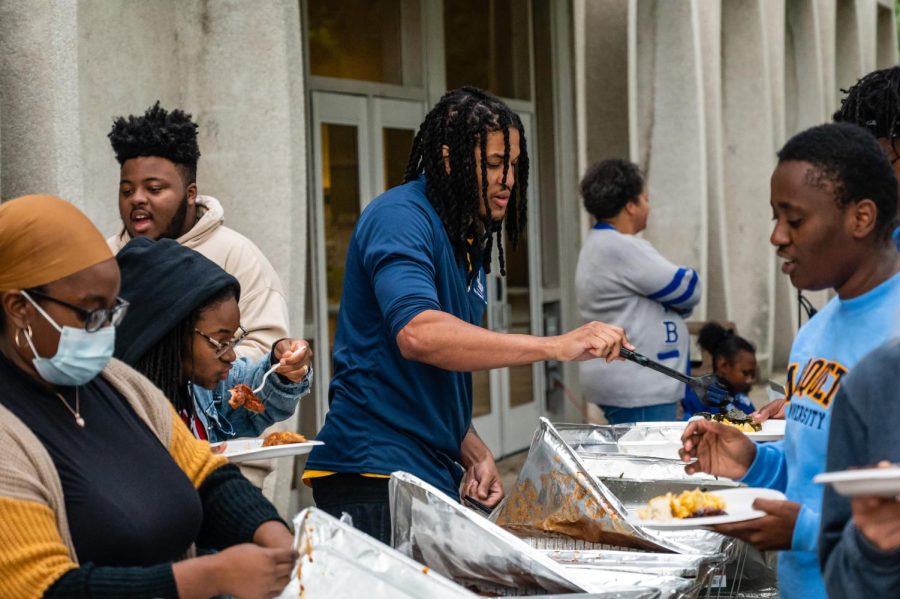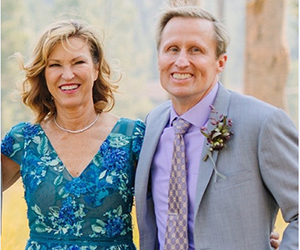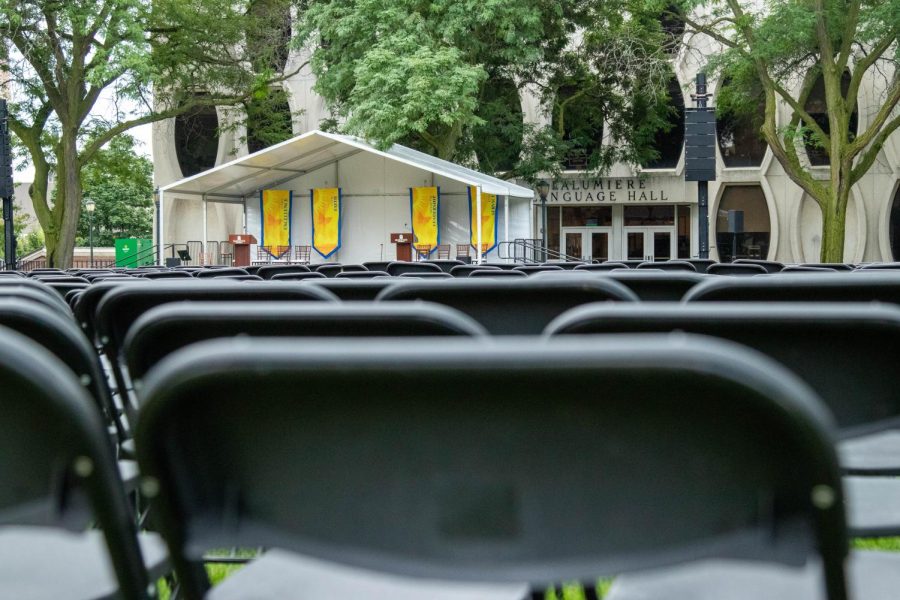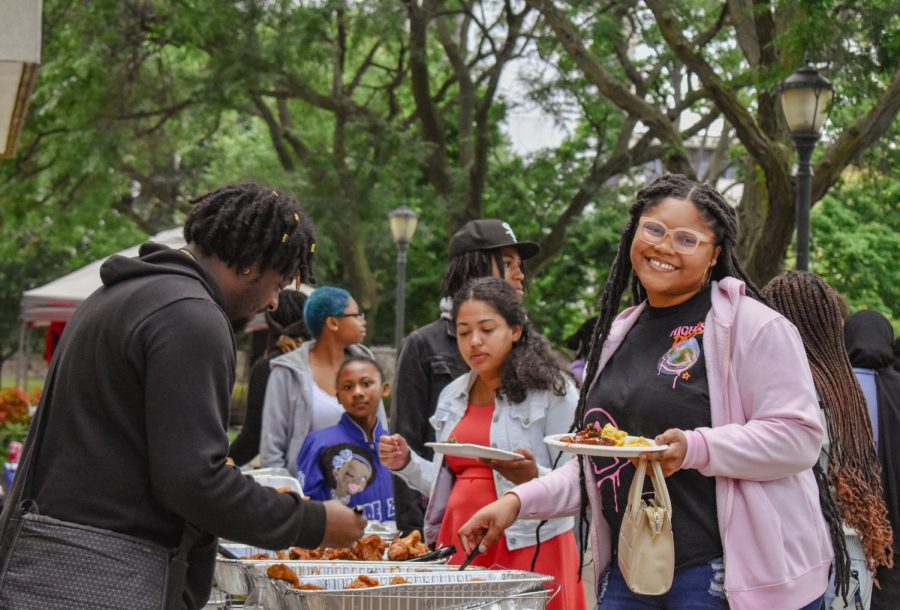Marquette’s home motto of “Be The Difference” may be mocked by some and praised by others. No matter how inspirational or cheesy it is, it is evident that the saying runs true for many students of color. The combination of growing independence, the brevity of a four-year college experience and the reality of being a minority amongst the majority, has inspired students to lead in their own way.
Senior in the College of Business Administration, Joshua Wilborn-Hinton, has a multi-ethnic background mainly consisting of Black and Asian ancestry. His diverse background influenced him to experience different ethnic cultures on campus and pursue several leadership positions.
“Before you step into a leadership position, figure out why you want to lead. Is it through recognition? Is it through investment to other people? Is it to share something with the world that needs to be shared? What is your reason?” Wilborn-Hinton says. “Once you found your reason, try to align yourself with that reason … you can’t lead in something you do not believe in.”
With that idea in mind, Wilborn-Hinton has found ways to experience Marquette his own way. He is on the leadership team for East Asian Cultural Organization, Intervarsity and a former leader in Bayanihan Student Organization. He also leads a Bible study group with his friend, Justice Osondu, a sophomore in the College of Communication.
Similar to Wilborn-Hinton, Osondu believed that finding a sense of community on campus was a priority, especially coming from a high school that had predominately minority students. Osondu is involved in and holds a number of leadership roles in clubs and organizations such as Urban Scholars, Intervarsity, Cru at Marquette and has a podcast titled “The Daily Walk Podcast” through Marquette Radio.
“I knew I wanted community, but I was not thinking about all leadership positions,” Osondu says. “At that time I was like ‘I’m in a new city, new faces, far away from home’ and I was just on a mission.”
Finding ways to build connections and be a positive representation has been part of the agenda for many students of color on campus. This is seen through the large number of ethnic organizations and leadership positions occupied by students of color.
Parvathy Nair, a junior in the College of Art & Sciences, is in her first year as president of the Indian Student Association. She states how she has witnessed a variety of challenges ISA faced, especially during the COVID-19 pandemic. She added that much of the group interactions were held virtually, making this school year close to “normal” given lighter campus restrictions on COVID-19.
With plans to rejuvenate awareness and increase participation within the organization, Nair urges young leaders to take advantage of their four years to be a positive influence.
“College is only four years. Those four years are very impactful in your life,” Nair says. “You always want to leave a place better. You never want to leave it worse. If you leave it the same as it was before, you can’t really say you did much throughout your four years.”
Making a positive impact is not only about what student leaders can do to bring more attention to their cultures, but also holding the university accountable for its shortcomings in supporting cultural organizations.
Nair says she supports groups such as Latin American Student Organization and Black Student Council in stirring up change on campus, after students of the groups faced disciplinary action after holding a demonstration during the New Student Convocation Aug. 25.
“It’s very important that LASO and other cultural organizations continue to call Marquette out and Marquette has to address it and hold themselves responsible and take ownership of what they’ve done,” Nair says. “Change has never been easy. A lot of these older institutions have prejudice bias engrained in them and it needs a little bit of tension to shift it.”
With the variety of experiences the three have faced in not only leading their respective groups, but operating as a person of color at a predominately white institution, Nair believes that being a leader is all about recognizing progress and inspiring yourself to move forward.
“Be proud of who you are,” Nair says. “Always create a safe space mentally and emotionally where you are proud with what you’ve done and when you can look yourself in the mirror and be like ‘Okay, you’re doing good.’ … If I don’t speak up for myself, who else will?”
This story was written by Andrew Amouzou. He can be reached at andrew.amouzou@marquette.edu.







